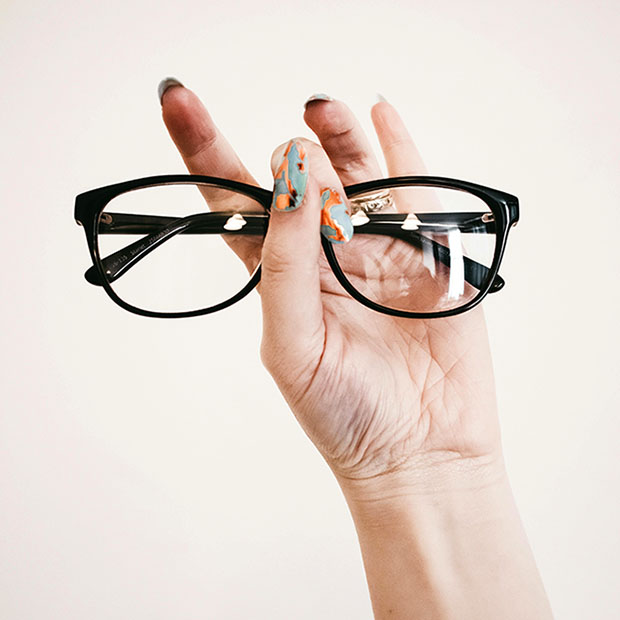Tips for Glasses and Contact Lens Care

The impact of glasses and contact lenses, despite their small size, is profound.
If you wear glasses or contacts, you likely recall the transformative moment when donning them let you to make out individual blades of grass and leaves on trees. Clear vision is essential for a multitude of daily tasks, underscoring the significance of proper care for our corrective lenses.
The Right Way to Clean and Store Glasses
Regular cleaning is essential to maintain the clarity of your glasses, ensuring they remain free of smudges, dust, oil, and other debris that can accumulate over time. However, using the hem of your shirt for cleaning is not ideal, as it can cause scratches. Instead, opt for a soft cotton or microfiber cloth paired with a specialized glasses cleaner. Alternatively, you can create your own cleaning solution by mixing a drop of dish soap with water in a small spray bottle.
In situations where your dedicated glasses cloth is unavailable and you need to remove smudges promptly, the hem of your shirt can serve as a temporary solution. However, it’s crucial to refrain from using tissues or napkins, as their paper-based composition can scratch the lenses. Additionally, steer clear of using window cleaner or ammonia-based products, as they may dissolve protective coatings on your glasses, compromising their integrity.
Proper storage is equally important to safeguard your glasses when they’re not in use. Be sure to store them in their designated case whenever they’re not on your face, as this helps prevent them from falling off surfaces or accidentally getting crushed. This simple precaution can significantly extend the lifespan of your eyewear and protect them from damage.
Be Careful With Contact Lenses
Taking care of contact lenses is a bit more intricate due to their direct contact with the eye, making hygiene a crucial aspect of maintenance. Here are some essential tips we advise our patients to follow:
- Always wash your hands thoroughly before handling your contact lenses to prevent transferring any dirt or bacteria to your eyes.
- Use fresh contact lens solution every time you clean or store your lenses, as reusing solution can lead to contamination and increase the risk of eye infections.
- Avoid using water on your contact lenses, as it may contain harmful microorganisms that can cause eye infections. Similarly, refrain from using saliva, as it can introduce bacteria to your lenses.
- Follow the instructions provided on the packaging of your contact lenses, including the recommended replacement schedule and the maximum duration for wearing them continuously before giving your eyes a break.
- Never compromise on contact lens care to save costs, as using expired or improperly cleaned lenses can lead to serious eye infections that outweigh any potential savings. Always prioritize your eye health and safety.
Additional Tips for Preventing Eye Infections
While contact lens wearers face a higher risk of eye infections, certain precautions can minimize this risk. Avoid touching or rubbing your eyes to prevent germ introduction, lens damage, or corneal scratches. Blink regularly, stay hydrated, and use eye drops if experiencing dryness.
Addressing Lens-Related Concerns
Regardless of your preferred corrective lens type, don’t hesitate to reach out with questions about their care. We prioritize our patients’ lens satisfaction and encourage prompt communication regarding any eye irritation, redness, or signs of infection. Remember, regular eye exams are crucial for maintaining eye health, not just for updating prescriptions.